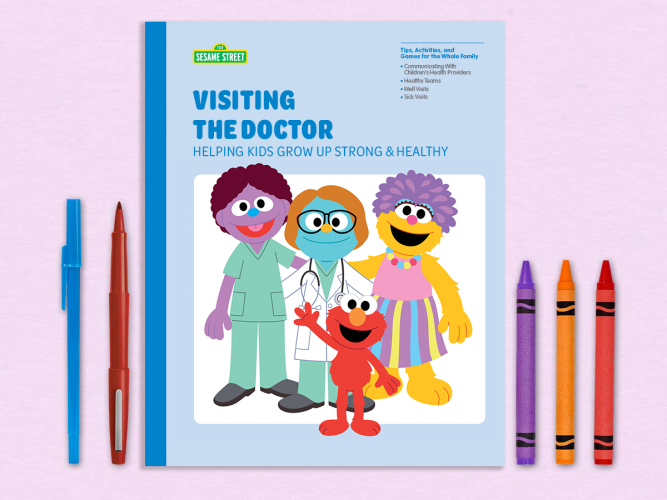
Communicating at Doctor’s Visits
Good communication leads to good care for your child.
As a parent, you’re the expert on your child. Taking a little one to the doctor can be stressful. Your child might be unwell and emotional. You might be worried, frustrated, or overwhelmed. Time with medical professionals can feel rushed.
But strong communication between parents and health providers leads to doctors and nurses getting the information they need to give your child the right treatment. Here are some tips to help your child—and you!—benefit as much as possible from every visit:
The big picture:
- Remember that doctors and nurses are on your side. You share the same goal—to make sure your child grows healthy and strong.
- Your child’s health is about more than their body. It also includes their relationships, safety, sleep, physical activity, nutrition, and social-emotional development. Remember that your child’s healthy team is there to help you with all parts of your child’s growth.
Before the visit:
Think about your child’s total wellness, not just their body. Do you have any questions or concerns about how much time they’re spending on screens, what they’re eating, how much sleep they’re getting, how they’re getting along with others, their mood, their behavior, or how they’re doing in school? Write them down (or put a note in your phone) and bring it up with their doctor.
During the visit:
- Don’t be shy about asking your questions. Every question is worth asking.
- It’s okay to ask doctors to slow down or repeat themselves so that you understand their advice or treatment instructions. Try repeating back to doctors what they’ve said to you (“So you’re saying Olivia is growing more slowly than before but that’s okay. We should make an appointment in six months to check.”).
- It’s great for your child to see you being comfortable, friendly, and open with doctors and nurses! It can help set the stage for them to feel that way themselves.
Especially during sick or emergency visits:
- Try to stay as calm as you can. That’s easier said than done, but calm communication helps the health workers focus on what matters most—your child’s care. Your calm “vibe” also offers your child the comfort and reassurance they need in a difficult moment.
- Try to have as much patience with medical staff as you want them to have with your child. Working in urgent cares and emergency rooms can be especially challenging these days, and things often take longer than anyone would like.
- Speak up and be persistent when necessary—sometimes you need to be more assertive to get the attention your child needs.
- Take notes on paper or on your phone to help you keep track of information.
- Bring any relevant medical records and a list of current medications.
And at any visit, don’t be afraid to say…
- I need an interpreter.
- I’m not following what you’re saying. Could you slow down?
- I don’t understand. Could you repeat that?
- Could you say again (or spell, or write down) the name of that medicine?
- Could you repeat (or write down) when and how often to give that medicine?
- I have another question about my child’s [sleep, physical activity, language development, eating habits, behavior, progress in school, time spent on screen or reading, and so on].
- How can I contact you if I have more questions?
Special thanks to the American Academy of Pediatrics.

Connecting & Communicating
Communication and connection with families is key to building a strong, effective healthy team.

Visiting the Doctor: Helping Kids Grow Up Strong & Healthy
Preparation and communication help you get the best care for your child at every medical visit.

Elmo and Abby’s Check-up Play Date
Pretend play can help children “rehearse” situations that may frighten them.

Rosita’s Favorite
Regular check-ups can be a fun and informative experience for the whole healthy team, kids included!

My Whole Healthy Life: Meet Reignen
A video about the different ways a Native American child and his family stay healthy.

My Whole Healthy Life: Meet Wa.Sta.Tse
A video about the different ways a Native American child and her family stay healthy.
